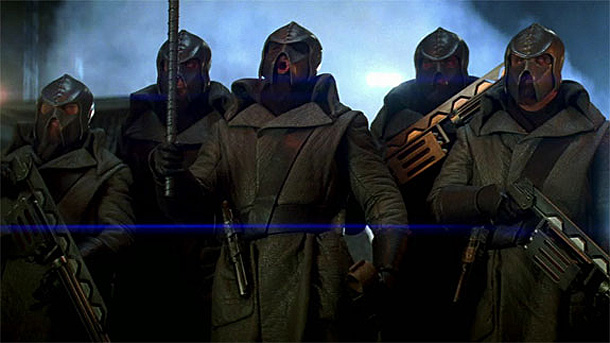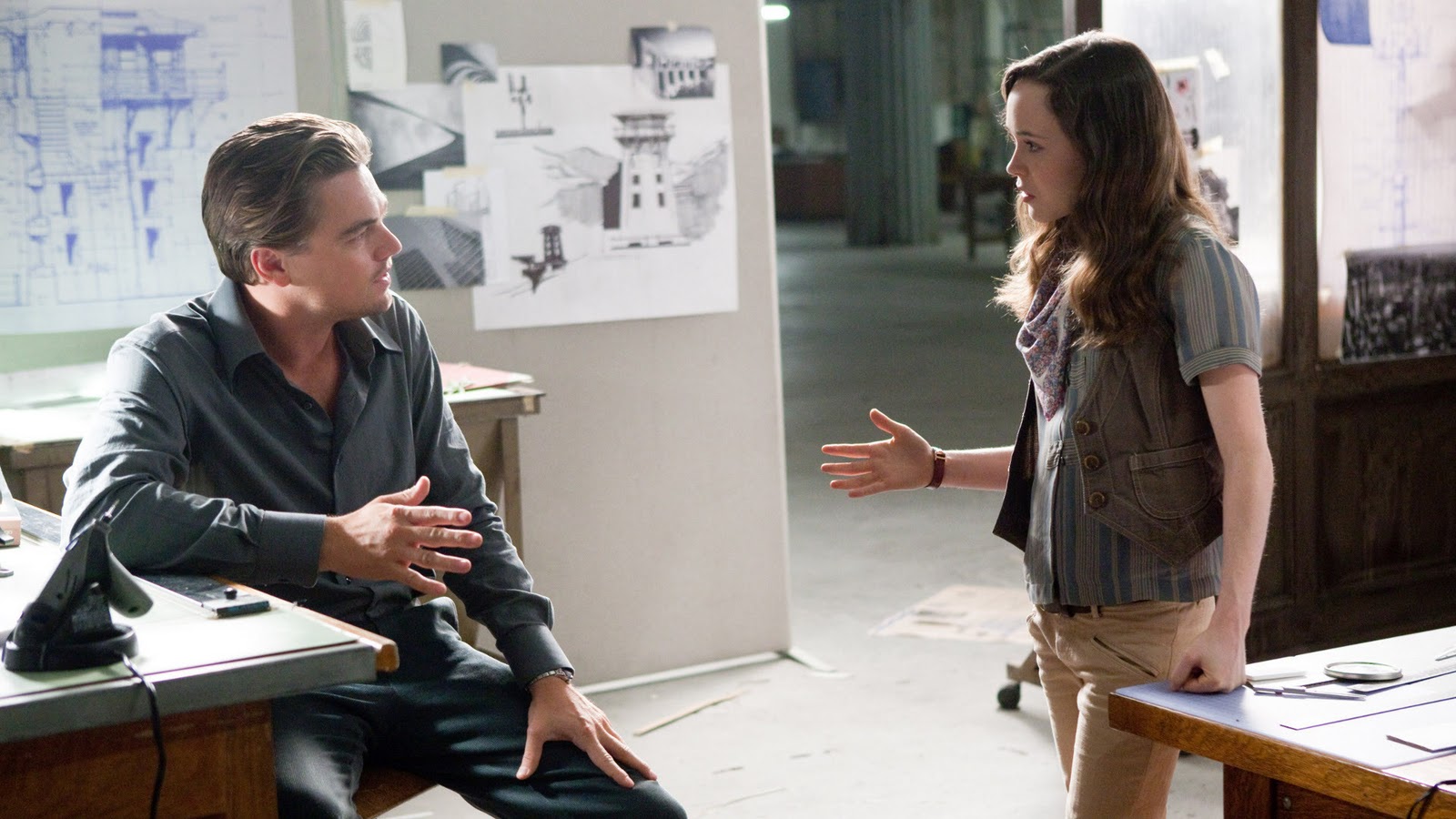“Why were we all ambushed, Arthur?!” Cobb shouts to his right-hand man in “Inception.” “Those weren’t regular projections. They’d been trained!” Things are not going well in the dreamscape. A displaced freight train just threw the team wildly off track, and a battalion seemed to come out of nowhere and assault them. But before we can deal with any of that, we’ve got questions. “It should’ve shown in the research—” Arthur attempts, before Cobb butts in, “So why the hell didn’t it?”
Yeah, Arthur, why the hell didn’t it? Cobb is not only stealing information from his target’s mind in Christopher Nolan’s blockbuster hit “Inception “, but has clearly peeked into those of some savvier moviegoers. All Arthur can suggest is that Cobb calm down and realize that they’ve dealt with similar resistance before, which is hardly any kind of answer at all.
 If you watch big budget entertainments, there’s no escaping these sorts of moments. The trope familiar to the Scooby-Doo generation, in which a few nagging uncertainties are resolved with a “there’s just one thing I don’t understand” kickoff, has now become a motif. Characters must constantly address questions on behalf of a too-curious audience awash in complexly-plotted mega-stories. The movies are trying to plug leaks in a boat before the whole thing sinks—never quite repairing it, but doing just enough to get by.
If you watch big budget entertainments, there’s no escaping these sorts of moments. The trope familiar to the Scooby-Doo generation, in which a few nagging uncertainties are resolved with a “there’s just one thing I don’t understand” kickoff, has now become a motif. Characters must constantly address questions on behalf of a too-curious audience awash in complexly-plotted mega-stories. The movies are trying to plug leaks in a boat before the whole thing sinks—never quite repairing it, but doing just enough to get by.
I first noticed this tactic being employed in a film involving no shortage of boats, in fact. “Pirates of the Caribbean: At World’s End” sees the gang off to the underworld to rescue Jack Sparrow, following his death at the climax of “Dead Man’s Chest.” Since that film ended with Captain Barbossa’s resurrection, courtesy of voodoo priestess Tia Dalma, two comic relief sidekicks can’t help but inquire, as anyone in the audience who’s even kept track of the plot might as well, why she didn’t apply the same treatment to Captain Jack? Ah, she answers, but Barbossa was only dead in spirit, his body still earthbound, while Jack has gone to the other side body and soul. The answer makes about as much sense as the rest of the plot, and so it, in turn, beats ever onward.
Once you notice moments like that one, they become harder to ignore. The aforementioned “Inception” has more than its share (“I know we said that when you die in a dream, you wake up, but now we’re too deep in the dreamscape!”), and the tangled mess of continuity Marvel created across six movies between 2008 and 2012 made for a host of problems as well. In “The Avengers,” Tony Stark wonders why Agent Coulson is asking him to join the team, repeating words familiar from “Iron Man 2,” that he was deemed “volatile, self-obsessed, [doesn’t] play well with others,” and denied membership. Coulson, and writer/director Joss Whedon, deflects by saying, “This isn’t about personality profiles anymore.”

Shields preventing enemy fire are often down in J.J. Abrams’s “Star Trek,” but the plot hole deflectors are always up. At point in the 2009 “Trek,” Spock asks why a sage representative didn’t beam aboard the Enterprise instead of Kirk, to relay crucial information that he could’ve explained more reliably than the young captain. The wise old man merely insists that Kirk and Spock need each other, and he could not “deprive you of the revelation of all you could accomplish together.” During the sequel, which is “full “of plot-deflector-up moments, the team encounters a surprise attack on Klingon planet Kronos, though they (and we) had been repeatedly informed they’re in an abandoned sector. When Kirk asks, Uhura can only suggest that it must be a random patrol.
The New York Times article “Save My Blockbuster!” confirms that this trend is more than coincidental. The writer Brooks Barnes asks a series of entertainment professionals to provide input on a pitch he concocted, hoping in the process to find out how such minds shape the most popular films of our time. Erik Feig, president of production at Lionsgate, is the only subject to insist that a plot hole be addressed within the movie itself. “The solution can be quite simple,” he said. “As long as the people in the movie are asking the same questions that the biggest cynic in the audience is asking, you will be O.K. You don’t have to supply the answer. But you do have to ask the question.”
Some films adopt Feig’s tactic, acknowledging that a particular question may be on the audience’s mind, then politely declining to answer it. There’s an example in summer’s “The Lone Ranger“: in one of the movie’s bracketing scenes, a young boy asks an elderly Tonto how he managed to escape from jail at a crucial juncture. Tonto ignores the request.
Some very few times, the question-and-answer format works, deepening character and circumstance. “Mission: Impossible – Ghost Protocol”‘s Ethan Hunt is able to distract some gunmen by planting a flare on a dead body; when his inexperienced colleague asks how he knew that would work, he brashly answers, “I assumed they were shooting at anything that moved. I just gave them a target.” After a ridiculous car chase in “Fast & Furious 6,” rescuee Letty, an amnesiac, asks her rescuer Dom, the lover she’s forgotten, how he knew a car would be there to break their fall. He replies, “I didn’t—Some things you just have to take on faith.” The line strengthens one of the film’s running themes. It also plays as a subtle joke on the sort of movie we’re watching: an adventure film in which cars can serve pretty much any function.
Such moments are rare in modern blockbusters, though—and that’s too bad. Stories demand to be crafted, not repeatedly reconfigured. If a movie is really stuck with a plot hole, perhaps it’s best to let it slide. As more and more people, be they screenwriters or executives, make later and later adjustments to often badly-rushed movies, I fear an eventuality in which we’ll be overrun with drawing room finales, giving all of the major characters a chance to air their grievances.

Should films be made with the intention of thwarting those who rush home to update IMDb’s “Goofs” section, or create inane videos like the “Everything Wrong With” series on YouTube? Hopefully not, but even filmmakers who claim such details are unimportant would rather not be called out on them.
In his commentary track for “The Curious Case of Benjamin Button,” David Fincher remarks on his own thorough brand of continuity management, noting one instance in which he let an error slide. He explains, “But, you know, it’s a movie. There are people who go through movies and look for inconsistencies and continuity errors, and they list them. I fear those people, and I also weep for them.”
Filmmakers can weep for the cynics, but there’s no reason to fear them. I can think of two ways of dealing with the problem that don’t involve patchwork dialogue, or scenes that raise questions only to ignore them.
First, one can simply ignore minor plot holes entirely, never mentioning them in any way, and hope that they’ll become little mysteries. Some great films have adopted this approach. Consider the moment in “Lawrence of Arabia” when Lawrence retrieves a wayward member of the traveling party lost in the impassable Nefud. The film doesn’t tell us how he found the man, who wouldn’t necessarily even be walking in the right direction. Lawrence’s unexplained achievement only emboldens his legendary status.
A second approach might be more desirable, given the hope for total comprehension: just establish salient points early and follow them up later. Jake Gittes notices the eyeglasses in Evelyn Mulwray’s pond long before they provide him a crucial piece of “Chinatown“‘s puzzle, but gets distracted before he can take a closer look; when he returns to them later, it’s a great, chilling moment. “2001: A Space Odyssey “repeatedly presents us with the explosive bolts on the backs of the Discovery’s repair pods, so when astronaut Dave Bowman needs them—to get back into the ship even though he forgot his helmet—we know exactly how his escape is achieved.
Whether you think of this approach as artistically superior or just tactically smart, current blockbusters could benefit from emulating it. For instance, before the Trek heroes left for Kronos, someone could have noted the possibility of random patrols, but hidden it from command to get the mission approved, adding intrigue. Such an approach would have allowed the audience to make the connection itself, creating a sense of being actively engaged in a story rather than sitting there passively during a two-hour illustrated lecture.
Granted, “2001” and “Chinatown” are so thoughtfully constructed that plot holes rarely come up when we talk about them. Both are just as convoluted as any modern blockbuster but more elegant in execution. It’s possible that when we talk about plot holes and the clumsy acknowledgment of plot holes, that’s what we’re really bemoaning: a lack of elegance.
Scott Nye is a Los Angeles-based freelance film critic, contributing regularly to “Battleship Pretension “and ” CriterionCast. “He is a member of the Online Film Critics Society, and blogs at “The Rail of Tomorrow.











